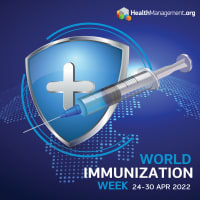The World Health Organization has released its ‘Global report on health data systems and capacity, 2020’ based on the analysis of health information systems of more than 130 countries.
You might also like:HIT in 2021: Most Important Aspects
For the assessment, the new SCORE for Health Data Technical Package was used, where S stands for ‘Survey populations and health risks’; C for ‘Count births, deaths and causes of death’; O for ‘Optimise health service data’; R for ‘Review progress and performance’; and E for ‘Enable data use for policy and action’. The package should help identify existing gaps in countries’ health data and establish health priorities.
The SCORE Package was launched in 2020 comprising Essential
interventions for strengthening country health information systems; Tools and
standards; and an additional Assessment instrument for health information
systems’ evaluation. Its first three elements – S, C and O – focus on the
quality of data sources and the remaining two – R and E – on the data management
and use.
For the report, funded by Bloomberg Philanthropies, the data
from 133 countries with 87% of the world’s population were studied. While the
document covers the pre-pandemic period of 2013-2018, it is noted that its
findings are still relevant.
Number and percentage of countries (n=133), and country population as a percentage of world population, by country capacity to survey populations and health risks (Source: WHO)
The key findings of the report include:
- All countries have the potential to realise stronger data systems. While over a half perform relatively well on S and R interventions, the situation is much worse for the other three. No country shows sustainable capacity across all five interventions, thus for all countries it is important to identify the gaps in their health information systems and work to improve the performance of the systems.
- More disaggregated data will enhance countries’ ability to monitor inequalities. Grouping data by sex and age is widespread, but other categories, such as education, wealth, or socioeconomic status, are not used in the majority of cases. In addition, availability of disaggregated data at a national level, but not in more local contexts may make systems look stronger than they really are.
- High-income countries have stronger health information systems. Sustainable solutions are needed to improve all countries’ systems. Across all five SCORE interventions, health information systems in high-income countries outperform those in lower-income ones. The differences in funding sources of these systems may explain the differences in performance. According to the report, higher-income countries are capable of sustaining their systems on their own while lower-income countries often rely on external support.
- Equitable investment across all health programmes strengthens a country’s reporting system. Implementation of targeted programmes (e.g. in the immunisation area) improve data availability to a certain degree, but other areas, such as mental health, remain overlooked. However, the increasing focus on strengthening health systems as a whole may help improve the overall quality of reporting.
- Improving data quality is essential for policy and planning. Having available data is not enough to inform planning and policies, the data need to be reliable. Currently, in about 40% of countries data quality assurance practices are questionable and many countries do not have the technical capability to ensure the quality of health data.
- Effective governance of data management and use will maximise return of investment in health information systems. A well-developed infrastructure, including dedicated ministry units, national observatories, and relevant regulatory frameworks, is needed for proper collection, assessment and use of health data in policymaking. The majority of countries have some elements of this infrastructure in place, but their functionality and integrity are not always clear.
Overall, the report concludes, health information systems in
high-income countries perform better than those in other groups. On the other extreme,
low-income countries struggle with health data management and informed policymaking.
The COVID-19 pandemic has added extra burden on health systems across the
world, and now having robust health data systems is more important than ever to
effectively manage not only the current but also future pandemics.
Source and image credit: WHO










